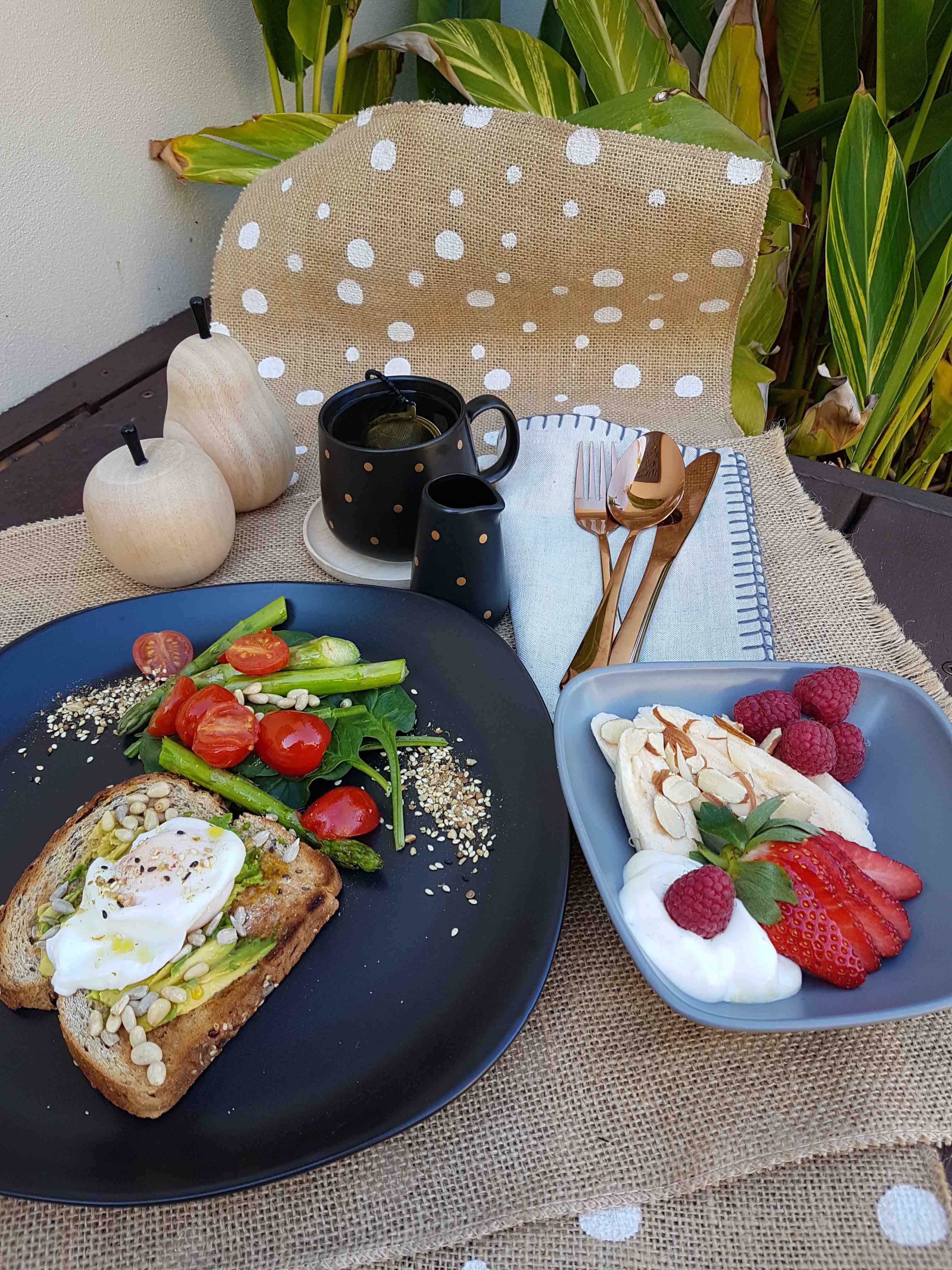Energy is one of the body’s most precious resources and one that is so directly affected by the busy “switched-on” lives we lead, the food we eat, the activity we do, and the sleep we get. The good news is there are many things that you can do each day to increase your energy and vitality, and “change what you can change”.
 Nourishing Food
Nourishing Food
If you feel like you’ve hit the energy slump at 2-3pm, it is common to reach for a coffee or a high sugar food for a quick pick-me-up. This is a short term solution for a long term problem. You are far better stabilising your blood glucose levels with regular meal patterns. Each day you should include a nourishing breakfast, lunch and dinner that are well-balanced with macronutrients – protein, wholegrain carbohydrates and nourishing fats. You may also need a nutritious snack in between meals to fuel your energy tank.
Whilst the macronutrients in the food provide our body with the energy it needs, it is the micronutrients (vitamins, minerals and antioxidants) that convert this into the energy (ATP) that our cells will use. Choose whole, real foods that are rich in these nutrients – for example, vegetables, fruits, lentils & legumes, meat and seafood, dairy foods, milk alternatives, wholegrains and nourishing fats. These foods with a high nourishment value will give you higher energy levels.
Two vital micronutrients for your energy power-pack are iron and the B group vitamins. Choose iron rich foods such as meat, chicken, seafood, eggs, lentils and dark green leafy vegetables. The B group vitamins help to release the energy from food and are found in lean meats, tuna, pork, eggs, leafy greens, yeast extract, almonds and seeds, wholegrains and bananas.
Co-enzyme Q10 is another micronutrient that is crucial for energy production and also acts an anti-oxidant in the body. You can get small amounts of CoQ10 from meat, seafood and extra virgin olive oil. Your body needs plentiful anti-oxidants from brightly coloured fruits and vegetables, green tea and cacao to prevent tissue damage and boost energy.
Adequate Hydration
Keeping well-hydrated is very important for all your cells in your body and brain to get adequate oxygen and blood flow, helping you to feel energized. Try to drink six – eight glasses of water each day.
Restorative Sleep
It is important to sync your sleep with your body’s natural circadian rhythm to get maximum energy. The body has its own inbuilt clock that helps you to work, rest, repair and digest. External influences such as excess caffeine, back lit devices, chronic levels of stress will disrupt the balance of particular hormones (e.g. serotonin, melatonin and cortisol) and ultimately the quality of your sleep. Keep a regular sleep cycle, stop your coffee early afternoon and turn off back-lit devices at least one hour before bed.

